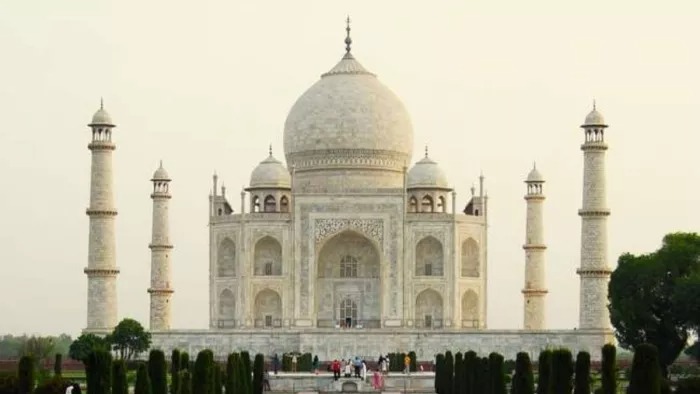Agra: There is a discussion going on across the country regarding the Waqf Amendment Bill-2024. While supporting the bill before the committee, the Archaeological Survey of India cited the dispute with the Waqf Board over Fatehpur Sikri and Atala Masjid and 120 monuments in the country. This affects conservation work and maintenance. The board had declared the Taj Mahal as a Waqf property in 2005, which was challenged by the ASI in the Supreme Court. Let us tell you that the Joint Committee has sought objections and suggestions on the Waqf Amendment Bill-2024.
The Sunni Waqf Board declared the Taj Mahal as a Waqf property in 2005. In fact, Muhammad Irfan Bedar had filed a petition in the Allahabad High Court demanding that the Taj Mahal be declared the property of the Uttar Pradesh Sunni Central Waqf Board.
The board declared the Taj Mahal a Waqf property
The High Court asked him to approach the Waqf Board. In 1998, Mohammad Irfan Bedar had requested the Waqf Board to declare Taj Mahal as a Waqf property. The Board had issued a notice to ASI. ASI had filed a reply saying that Taj Mahal is its property. In 2005, the Board declared Taj Mahal as a Waqf property, ignoring the objection of ASI. ASI had filed a petition in the Supreme Court against the Waqf order.
The Supreme Court imposed a ban
In 2010, the Supreme Court stayed the order of the Waqf Board. During the hearing in April 2018, it also commented that the Supreme Court's time should not be wasted in such cases. Who will believe that the Taj Mahal is a Waqf property? The Waqf Board could not even produce the Waqfnama signed by Shah Jahan.
Shamsuddin, president of the Accredited Tourist Guide Association, says that the Waqf Board was set up to take care of the land left for tombs, madrasas and mosques. The Waqf properties were sold by those who were entrusted with the security and maintenance by the board. The Waqf Board was formed in the year 1954 after the Waqf Act came into force. The Taj Mahal was still there at that time. The board declared it a Waqf property in the greed of earning money.
The Taj Mahal belongs to the Indian government
In British India, a notification was issued in the year 1920 to declare the Taj Mahal as a protected monument. Hence, the Taj Mahal is the property of the Government of India.
Earlier, ownership of the properties acquired from the last Mughal emperor Bahadur Shah Zafar had passed to the British Queen as per the declaration of 1858.
 look news india
look news india

